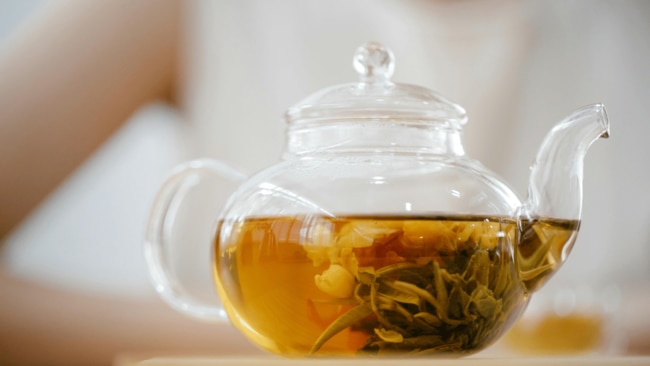Tea could significantly reduce the risk of dementia, study shows
Start sipping for more brain power

Lifestyle
Don't miss out on the headlines from Lifestyle. Followed categories will be added to My News.
Dementia is a degenerative and incurable illness, however lifestyle choices can affect your risk of diagnosis later in life. Now, a new study says tea could play a large role in reducing dementia risk. Here, dietitian Ashleigh Jones explains why.
There are currently more than 421,000 people in Australia living with dementia, a group of conditions that includes Alzheimer’s disease, vascular dementia, the Lewy body dementias and more.
It's a degenerative illness, affecting the memory centre of the brain, and is deemed incurable. However, healthy lifestyle choices made earlier in life can go a long way to reducing your risk of dementia later on.
According to a new study, drinking tea could play a large role in reducing your risk – here's why.
What is dementia
Dementia is a brain condition, but preventing dementia means looking after your heart as well as your brain. That’s because your heart health and your brain health are connected. Conditions that are linked to a higher risk of developing dementia include high blood pressure, high cholesterol, type 2 diabetes, obesity, and heart disease (e.g. atrial fibrillation, congestive heart failure, or having previously suffered a heart attack).
It's most common after the age of 65. While it can affect anybody, almost two-thirds of people with dementia are women. It is the leading cause of death for women, and the second leading cause of death overall.

Health benefits of tea
Good nutrition can help prevent these conditions. This means minimising your alcohol intake, consuming five serves of vegetables and two serves of fruit each day and limiting your intake of saturated fat, salt and added sugar. There has also been some recent research looking at the role of tea.
While there a many herbal teas available, most of the research is looking at “true” teas, which are those derived from the Camellia sinensis plant. White, green, oolong and black tea are all made from this plant, just using different processing techniques. White teas are made using young leaves that are sun-dried to prevent oxidation. For green tea, leaves are withered in sunlight before drying. Oolong tea is prepared in the same way as green but is semi-oxidised, while black tea is fully oxidised. Black tea is typically used to make varieties such as English Breakfast or Earl Grey.
All Camellia sinensis teas are rich in bioactive compounds known as flavonoids. Flavonoids are a type of antioxidant, meaning they help reduce your body’s oxidative stress and inflammation. Because inflammation is a huge part of chronic conditions like high blood pressure and type 2 diabetes, it is thought that flavonoid-rich ingredients, such as tea, might help prevent these conditions.

The study
A 2023 meta-analysis covering more than 400,000 individuals found that tea consumption was associated with a reduced risk of dementia. These studies were conducted in Japan, UK, China, Finland and Germany and looked exclusively at Camellia sinensis teas – herbal teas were not included.
Those who identified as drinking tea had a 29% lower risk of dementia than those who did not drink tea. When individuals reported drinking tea daily, their risk of dementia was between 21% and 40% lower than those who did not drink tea daily.
Unfortunately, this study was not able to tease out a specific dose of tea that was associated with the lowest risk of dementia. Nor was it able to define whether a certain type of Camellia sinensis tea (e.g. oolong vs black vs green) was associated with a lower risk overall. However, it is worth noting that Camellia sinensis tea contains caffeine, and excessive caffeine consumption can bring complications such as elevated blood pressure.
If you’re looking to minimise your risk of developing dementia, a daily cup of tea can be a delicious, relaxing and cost-effective part of your daily routine. And there is no need to switch to green tea if you’re exclusively a black tea drinker, or vice versa. Just don’t lose sight of the bigger picture, and remember that your overall diet, as well as avoiding tobacco and excessive alcohol, is going to be a bigger determining factor of your long-term health and wellbeing.

Ashleigh Jones is an Accredited Practising Dietitian and leads a team of dietitians at Lite n’ Easy. She is known for her practical, no-BS approach to healthy eating and her experience in helping patients with IBS. You can follow her on Instagram here.
More Coverage
Originally published as Tea could significantly reduce the risk of dementia, study shows




